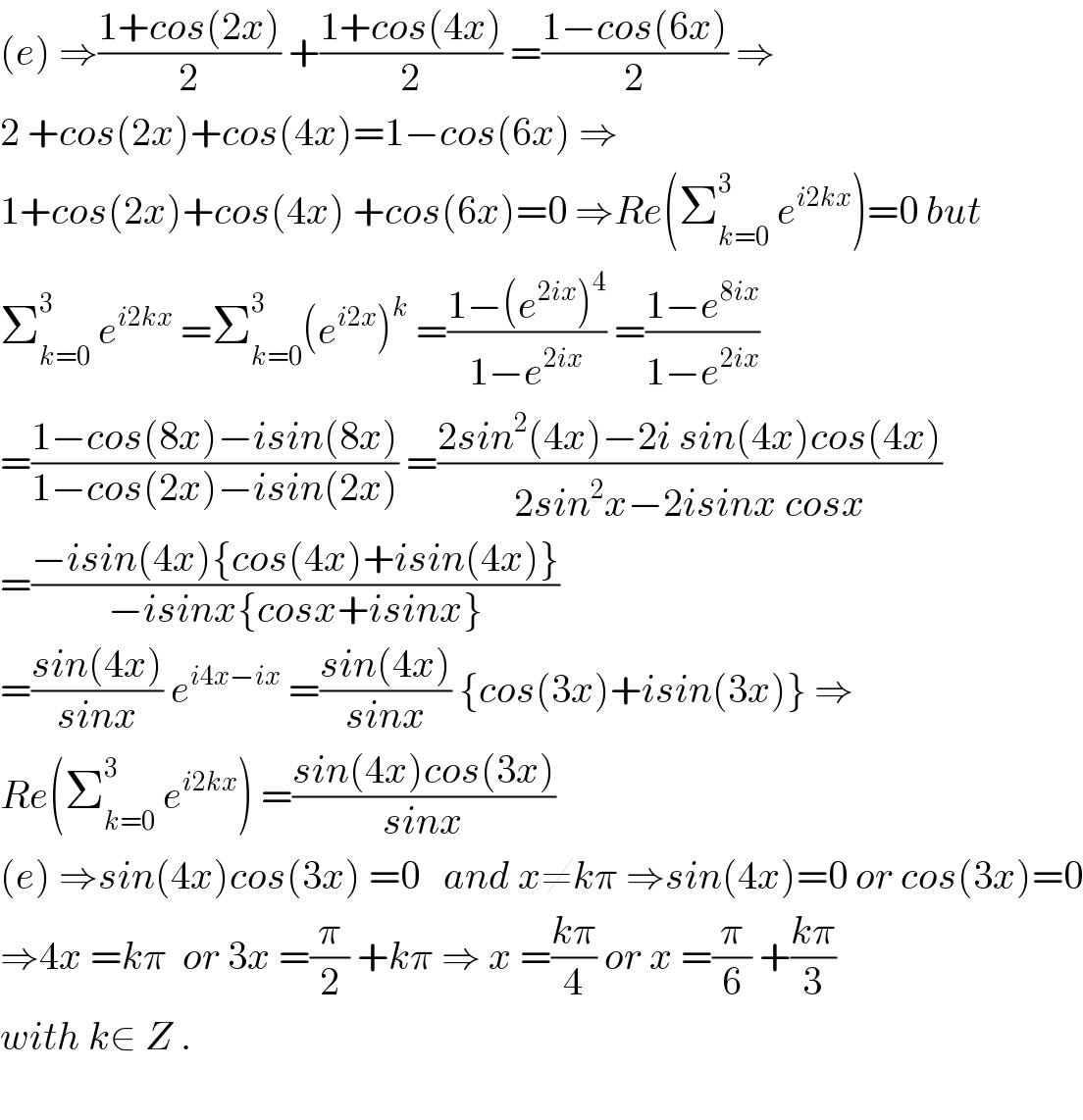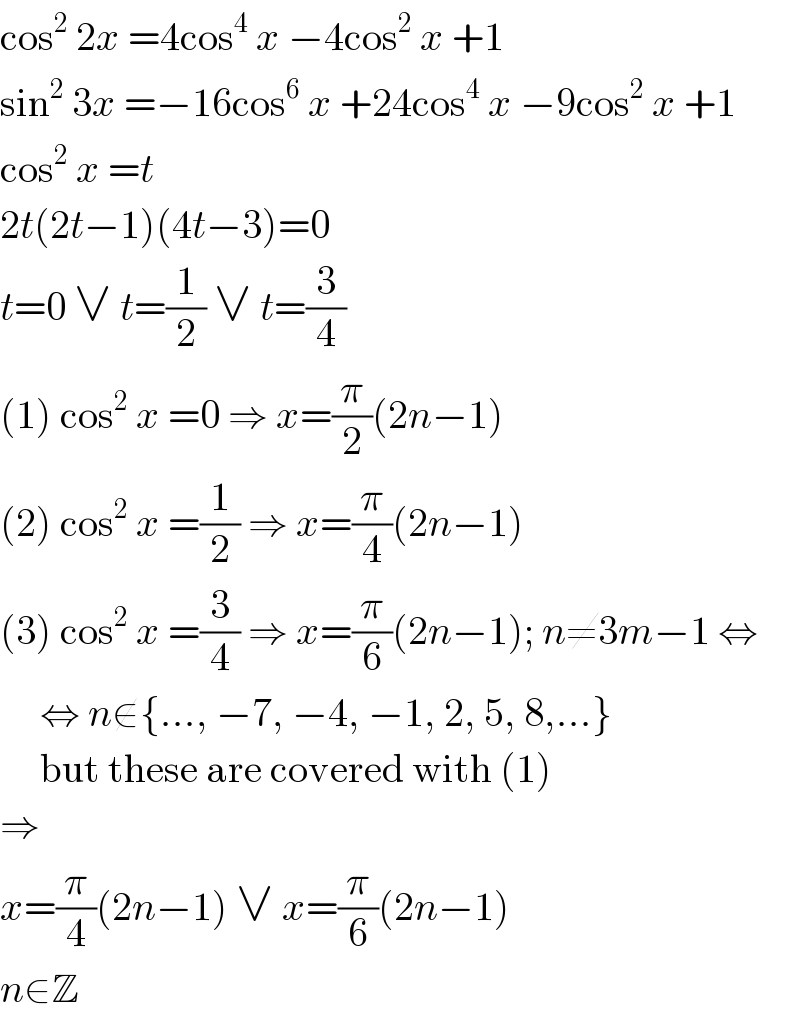
Question and Answers Forum
Question Number 67516 by LPM last updated on 28/Aug/19

Commented by Prithwish sen last updated on 28/Aug/19
![cos^2 x +(2cos^2 x−1)^2 = 1−cos^2 3x Simplyfying we get, 2cos^2 x(4cos^4 x−10cos^2 x+3)=0 ⇒cos^2 x = 0 and cos^2 x=((10±(√(52)))/8) ∴ x=(2n−1)(π/2) and x = Cos^(−1) [((√(5±(√(13))))/2)] please check.](Q67543.png)
Commented by mathmax by abdo last updated on 19/Sep/19

Answered by MJS last updated on 18/Sep/19

Commented by Prithwish sen last updated on 28/Aug/19

Answered by mr W last updated on 28/Aug/19

Commented by Prithwish sen last updated on 28/Aug/19

Commented by LPM last updated on 29/Aug/19

